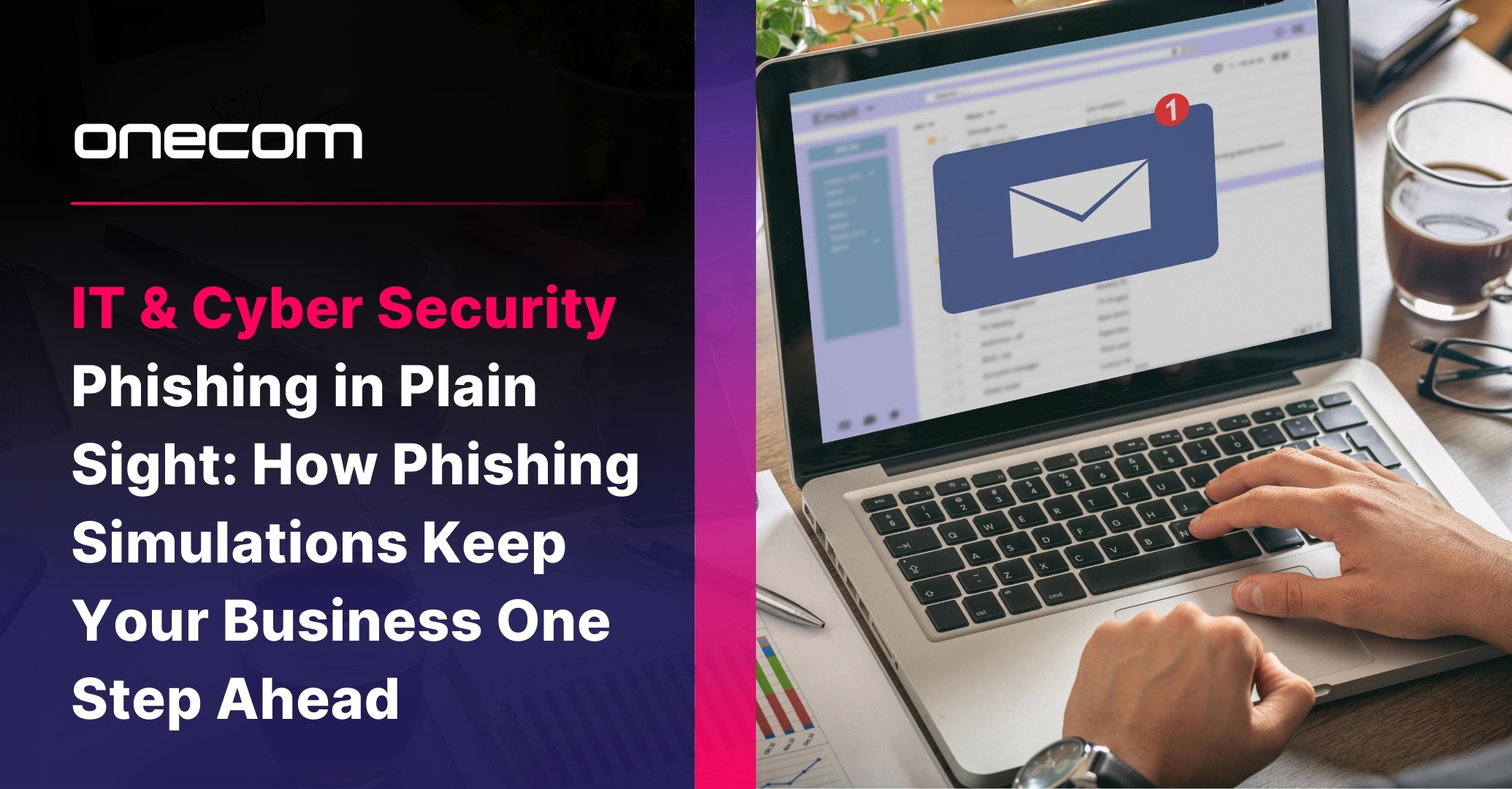Phishing has long been one of the most common and dangerous forms of cyber attacks, and its prevalence continues to rise. As of September 2024, the UK’s National Cyber Security Centre (NCSC) has received over 35 million phishing scam reports, leading to the removal of more than 196,000 phishing-related scams.
What is Phishing?
Phishing emails typically deceive recipients into providing sensitive information or clicking malicious links, which can lead to severe financial losses and data breaches.
For businesses, the risks are substantial. A single phishing email can bypass an organisation's external security defences and once opened, provide criminals access to private networks, customer data, and critical company information. As phishing scams evolve, they are becoming harder to spot, making employee awareness and proactive defences essential for every company.
Phishing by the Numbers: The Current Threat Landscape
Phishing continues to wreak havoc across industries. In 2022 alone, the NCSC saw a sharp rise in phishing scams, including impersonations of high-profile organisations such as the NHS, HMRC, and Ofgem. Scammers capitalised on urgent, real-world issues like energy bill support and tax rebates, preying on people’s vulnerabilities and creating highly convincing fraudulent emails.
Even as security technology improves, phishing remains a major vulnerability. Cyber criminals now use advanced techniques like spoofing legitimate-looking email addresses, mimicking organisational branding, and incorporating personal information into their attacks. This makes phishing difficult to detect and even easier to fall for, which is why ongoing vigilance is necessary.
The Challenge: Why Phishing is So Effective
Phishing’s effectiveness stems from its ability to exploit human nature. Many phishing emails create a sense of urgency, such as fake warnings about account closures or fraudulent activity. They often lure recipients into clicking malicious links or revealing sensitive details, resulting in financial theft, data breaches, or the installation of malware.
These attacks are increasingly sophisticated, with criminals investing time into personalising emails using publicly available information from social media or websites. As a result, phishing messages often appear genuine, making them difficult to distinguish from legitimate correspondence.
For businesses, this is particularly dangerous. Phishing attacks can lead to compromised accounts, significant financial losses, and damage to a company’s reputation. According to recent statistics, 81% of hacking-related breaches involve stolen or weak credentials, often obtained through phishing attacks. Once attackers gain access to company accounts, they can move laterally within the network, exfiltrate sensitive data, or deploy ransomware.
Fighting Phishing with Simulations and Employee Training
While technical solutions like spam filters and firewalls help to reduce phishing emails, the most critical defence lies in educating employees. This is where phishing simulation services come in. Simulated phishing exercises allow businesses to test their employees' ability to recognise phishing emails in real-world scenarios. These simulations are an essential tool in helping to reduce the risk of falling victim to phishing attacks.
Benefits of Email Phishing Simulations:
- Real-World Training: Employees experience realistic phishing scenarios, helping them understand what to look for and how to react to suspicious emails. This hands-on approach provides practical learning that goes beyond traditional cybersecurity training.
- Identifying Weak Points: Phishing simulations provide valuable insights into which employees or departments are more susceptible to falling for phishing scams. This allows businesses to target further training and implement additional security measures where necessary.
- Continuous Improvement: By regularly conducting phishing simulations, companies can track progress and improve their overall cybersecurity posture. Over time, employees become more adept at spotting phishing emails and responding correctly, reducing the likelihood of a successful attack.
- Building a Security-First Culture: Simulations reinforce a culture of security awareness within the organisation. When employees understand that cybersecurity is a collective responsibility, they are more likely to adopt safe online behaviours.
Onecom’s phishing simulation services are designed to empower businesses to proactively defend themselves against phishing attacks. By incorporating regular phishing tests and follow-up training, companies can build a stronger defence and minimise the risk posed by these persistent threats.
Find out more about Onecom phishing simulation services today.
